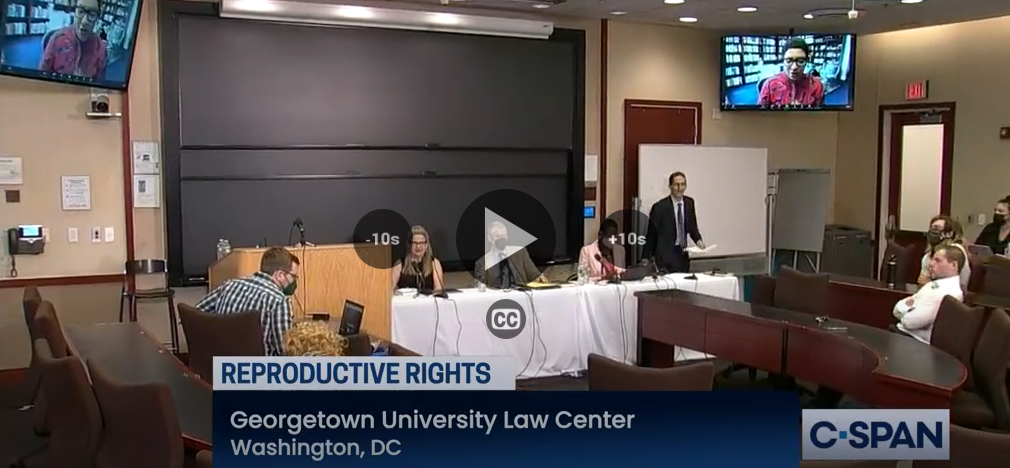This is a quick update on last week’s post.
On June 1, the 80th anniversary of the U.S. Supreme Court’s landmark decision in Skinner v. Oklahoma, I participated in a panel at Georgetown University Law Center with Professors Victoria Nourse, Michele Goodwin, Melissa Murray, and Brad Snyder on “The Unknown History of Reproductive Rights & Eugenics: From Skinner to Roe.”
In Skinner, the Supreme Court unanimously declared unconstitutional an Oklahoma law that provided for the sterilization of some thrice-convicted “habitual criminals.” Jack Skinner, a state prison inmate, won a decision that protected his reproductive capability and autonomy.
The Skinner decision is an important part of U.S. constitutional law doctrines that protect individuals from government regulations and penalties in the areas of contraception, abortion, private intimacy, and other fundamental bodily rights.
You can watch the panel on C-SPAN, at this link: https://www.c-span.org/video/
My lecture, about Justice Robert H. Jackson’s concurring opinion in Skinner, other aspects of his judicial work, and his work as U.S. chief prosecutor at Nuremberg of Nazi war criminals, begins at time counter reading 21:20.

